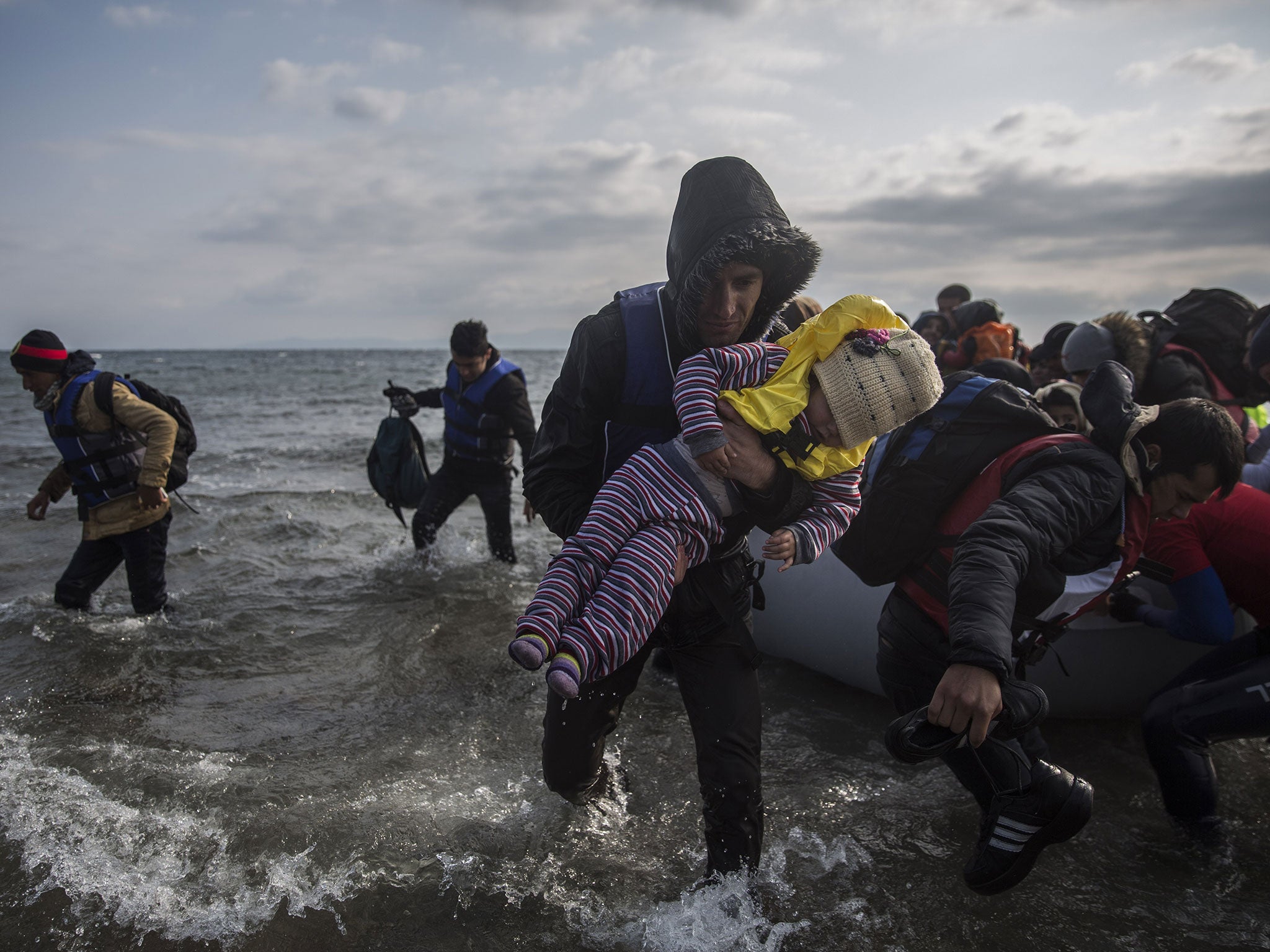Refugee crisis: Number of people reaching Europe in 2015 passes 1 million
The International Organisation for Migration says landmark has been passed for the first time

Your support helps us to tell the story
From reproductive rights to climate change to Big Tech, The Independent is on the ground when the story is developing. Whether it's investigating the financials of Elon Musk's pro-Trump PAC or producing our latest documentary, 'The A Word', which shines a light on the American women fighting for reproductive rights, we know how important it is to parse out the facts from the messaging.
At such a critical moment in US history, we need reporters on the ground. Your donation allows us to keep sending journalists to speak to both sides of the story.
The Independent is trusted by Americans across the entire political spectrum. And unlike many other quality news outlets, we choose not to lock Americans out of our reporting and analysis with paywalls. We believe quality journalism should be available to everyone, paid for by those who can afford it.
Your support makes all the difference.The number of refugees arriving in Europe has passed 1 million for the first time, the International Organisation for Migration has said.
In a joint statement issued with the UN's refugee agency, the IOM said a further 3,600 died or went missing this year while trying to make the treacherous journey.
Half of all those arriving were Syrians fleeing the country's long civil war, 20 per cent were Afghans and a further seven per cent were of Iraqi origin.
William Lacy Swing, the chief of the IOM, said: "We know migration is inevitable, it's necessary and it's desirable.
"But it's not enough to count the number of those arriving-or the nearly 4,000 this year reported missing or drowned. We must also act. Migration must be legal, safe and secure for all-both for the migrants themselves and the countries that will become their new home."
While the IOM said it was impossible to forecast future numbers, the UNHCR said it was planning for arrivals to continue at the same rate in 2016.
"I don't understand why people are insisting that this is a European problem. This is a global issue," Michael Moller, director of the U.N. office in Geneva, said.
Join our commenting forum
Join thought-provoking conversations, follow other Independent readers and see their replies
Comments